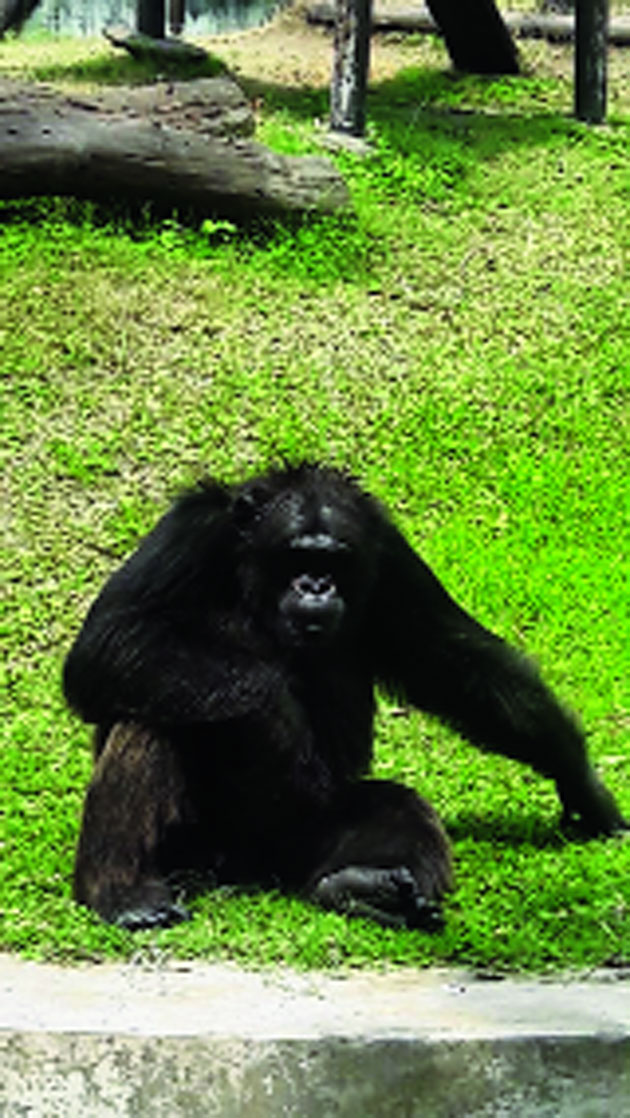Cheerleaders are at work in one corner. Cupid has struck in another.
Alipore zoo has remained shut to visitors for over a month and a half but keepers are trying to ensure life goes on as normal for 1,000-odd animals inside. Old-timers could not recall if and when the 144-year-old zoo, India’s oldest, had been shut for such a long time.
The sprawling park, spread over 19 hectares, has been wearing an eerily deserted look. A team of around 60 — comprising vets, keepers and guards —are on duty by rotation.
The absence of visitors and with the din of traffic missing, the lives of animals and birds have been affected in different ways.
Babu, the 36-year-old chimp and the biggest crowd-puller at the park, had remained holed up in the night shelter attached to his enclosure for most of the day in the first phase of the lockdown.
“For the past week, a team of keepers has been calling out to Babu and cheering him up with claps and by clanging utensils. The plan seems to have worked. Babu is spending more time in the open enclosure now and is back to of his antics, like running with his hands up or swinging from the logs of wood erected over his head. But he is not 100 per cent his usual self yet,” said Asis Kumar Samanta, the zoo director.
Around 25 metres away, near the main gate, the mood is upbeat inside the enclosure of the brow antlered deer — or Manipur dancing deer, as it is popularly known.
“The deserted park is like a blessing for these shy animals. Earlier, they seldom appeared outside the night shelter during visiting hours. Now, free from stress, they are running around all day. Some of the deer have mated as well, after a long gap,” said a zoo official.
The lengthy shutdown has also seen the arrival of a striped bundle of joy. On April 13, a foal was born to a zebra at the park. “The mother and baby are fine. The baby is the centre of attraction in the herd,” said the vet.
Zoo staff who live in containment zones have been barred from entering.
“Only those who live in the staff quarters in the compound are working. Temperature reading with a thermal gun is a must before entry,” said V.K. Yadav, member-secretary of the Bengal Zoo Authority.
Only vehicles carrying food for animals are allowed.
Even in the lean summer months, the zoo’s average daily footfall was around 6,000. A ticket for an adult was priced at Rs 30. But Yadav shrugged off the revenue loss.
“The government has sanctioned a grant-in-aid of Rs 8.5 crore for 12 zoos in Bengal. We also have a corpus fund that we can tap during an emergency,” he said.











